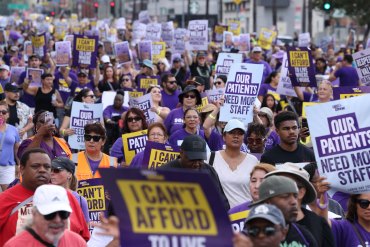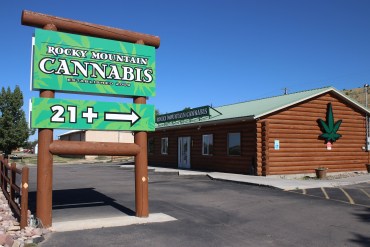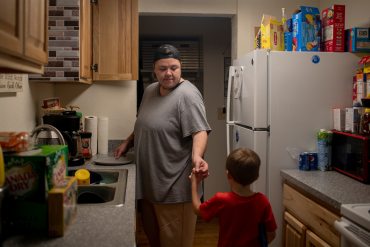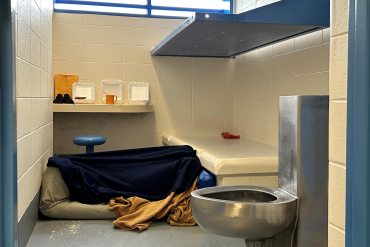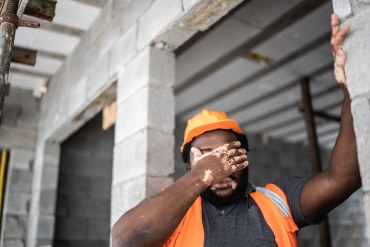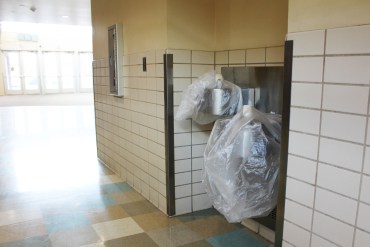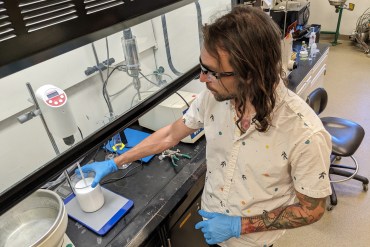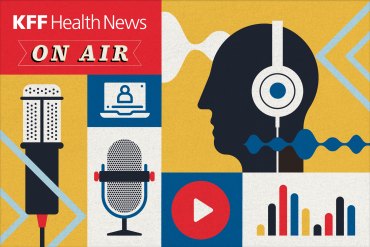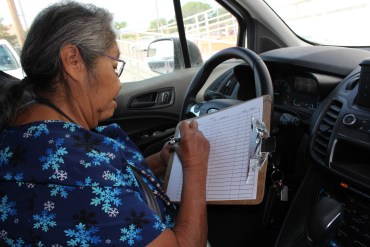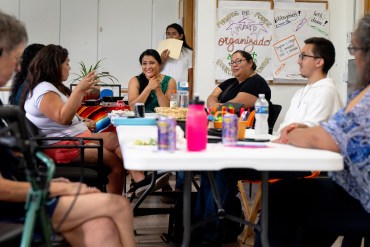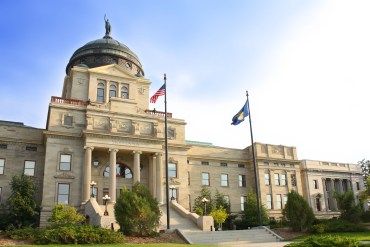A Decades-Long Drop in Teen Births Is Slowing, and Advocates Worry a Reversal Is Coming
After three decades of declines in teen pregnancies, data shows the rates are starting to plateau. The reversal of “Roe v. Wade,” coupled with efforts to suspend sex education in schools and higher rates of youth mental health issues post-pandemic, could culminate in a perfect storm.
Massive Kaiser Permanente Strike Looms as Talks Head to the Wire
Both sides, still at loggerheads over pay and staffing, agreed to keep bargaining after unions announced a possible strike Oct. 4-7. If no deal is reached, a walkout by about 75,000 KP workers in five states could disrupt care.
Pot Boom Wakes Sleepy Dinosaur, Colorado
A small town close to the Colorado-Utah state line strikes it rich with marijuana sales.
Officials Agree: Use Settlement Funds to Curb Youth Addiction. But the ‘How’ Gets Hairy.
Parents, educators, and elected officials agree that investing in school-based prevention efforts could help curb the rising rate of youth drug overdoses. The well-known D.A.R.E. program is one likely choice, but its effectiveness is in question.
How Will Rural Americans Fare During Medicaid Unwinding? Experts Fear They’re on Their Own
As states review their Medicaid rolls after the expiration of a pandemic-era prohibition against kicking recipients off the government insurance program, experts say the lack of help available to rural Americans in navigating insurance options puts them at greater risk of losing health coverage than people in metropolitan areas.
As More Patients Email Doctors, Health Systems Start Charging Fees
Doctors say billing for email consultations reduces message volume and gives them more free time. The increasingly prevalent practice has also raised fears about negative impacts to patient care.
Un padre soñaba con una casa para su familia. La deuda médica casi los deja en la calle
En todo el país, la deuda médica obliga a legiones de estadounidenses a hacer sacrificios dolorosos. Muchos recortan gastos en alimentos, asumen trabajos adicionales o agotan sus ahorros para la jubilación. Miles no pueden conseguir vivienda.
Montana State Officials Seek More Control Over Judicial Involuntary Commitments
Health department officials are asking legislators to change criminal commitment laws amid a bottleneck at the Montana State Hospital.
A Father Dreamed of a Home for His Family. Medical Debt Nearly Pushed Them Onto the Streets.
As cities like Denver struggle to make homes more affordable, medical debt keeps housing out of reach for millions of Americans.
Workers Pay the Price While Congress and Employers Debate Need for Heat Regulations
Studies suggest official numbers vastly underestimate heat-related injuries and illness on the job. To institute protections, the government must calculate their cost — and the cost of inaction.
How Far Will Montana’s Push to Remove Lead from School Drinking Water Go?
Montana has earmarked $3.7 million to address widespread high levels of lead in school drinking water. But it likely isn’t enough to solve the problem.
A Move to Cut Drug Prices Has Patients With Rare Diseases Worried
A Colorado board has named five drugs it will review for affordability and potential cost caps. But patients with cystic fibrosis worry they will lose access to a life-changing therapy.
A Nanoengineer Teamed Up With Rihanna’s Tattoo Artist to Make Smarter Ink
Tattoos are more popular than ever. About a third of Americans have at least one. A scientist-entrepreneur, together with a celebrity tattoo artist, believes that ink could be doing a lot more.
Journalists Track Hospitals’ Delivery of Charity Care and the Menace of ‘Forever Chemicals’
KFF Health News and California Healthline staff made the rounds on national and local media this week to discuss their stories. Here’s a collection of their appearances.
Doctors and Patients Try to Shame Insurers Online to Reverse Prior Authorization Denials
Prior authorization is a common tool used by health insurers for many tests, procedures, and prescriptions. Frustrated by the process, patients and doctors have turned to social media to publicly shame insurance companies and elevate their denials for further review.
Tribal Health Workers Aren’t Paid Like Their Peers. See Why Nevada Changed That.
Community health workers, who often help patients get to their appointments and pick up prescriptions for them, have increasingly been recognized as an integral part of treating chronic illnesses. But state-run Medicaid programs don’t always reimburse them equally, usually excluding those who work on tribal lands.
Community With High Medical Debt Questions Its Hospitals’ Charity Spending
Pueblo, Colorado, residents have higher-than-average medical debt, while the city’s two tax-exempt hospitals provide relatively low levels of charity care.
Voters Rejected an Anti-Abortion Measure. State GOP Lawmakers Passed a Similar Bill Anyway.
The new Montana law contains a couple of significant differences from the measure voters rebuffed last fall.
As a Union Pushes to Cap Hospital CEO Pay, It’s Accused of Playing Politics
A union is asking Los Angeles city voters to cap hospital executive pay at the U.S. president’s salary. However, hospitals accuse the union of using the proposal as political leverage, and policy experts question whether the policy, if enacted, would be workable.
Teens With Addiction Are Often Left to Detox Without Medication
Facilities that offer medically managed substance use treatment for patients under 18 are few and far between in the United States. A Denver hospital is trying to help fill the gap.





